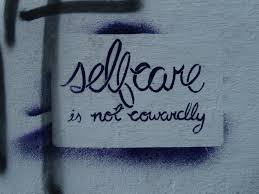Managing the Holidays with Dissociative Identity Disorder

For many people around the world, December is a month of celebration, with numerous holidays taking place throughout the last month of the year, but managing the holidays with dissociative identity disorder can be tricky. The holidays can be joyous and exciting for those who celebrate. For many with dissociative identity disorder (DID), however, this time of the year can be tremendously stressful and anxiety-provoking. Dissociative symptoms can worsen during the holidays, but there are steps you can take to make managing the holidays with DID a little easier.
While many people are feeling happy and joyful, a person with DID may be struggling to appear "normal" while covering up inner turmoil and negative feelings. The holidays may be a reminder of traumatic experiences, which can trigger dissociative episodes. The increased emphasis on family around the holidays can be difficult for someone who experienced abuse or trauma within a family environment. Despite these difficulties, it is important to recognize that you and your system have needs. These needs may not coincide with holiday traditions, and that's okay.
Dissociative Identity Disorder Alters Can Have Conflicting Views about the Holidays
Managing the holidays with DID can be even more difficult if your alters don't share the same views about the holidays as you do. Even though it may be a triggering time for you, your alter may have different ideas and want to celebrate and experience the holiday. For those with co-conscious alters, you may be fully aware of an alter's excitement over the holidays. This is especially common for those with younger alters.
It is important to consider your alters' views and try to incorporate them into a plan that works for everyone involved. You can engage younger alters in a holiday-themed activity, such as coloring or crafts, if they want to participate in some holiday fun. Some people buy or make each alter a special holiday gift so that each feels included in the celebration.
For alters that do not like the holidays, it is important that they feel heard and that their opinions are respected. An alter's feelings are valid just like any other person's. Try to work with everyone in your system to reach a compromise so no one feels isolated or hurt.
Asserting Your Needs Is Essential When Managing the Holidays with Dissociative Identity Disorder

Be an advocate for your own needs during the holiday season. If something specific is a trigger to you, let people know. It is okay to decline an invitation to a gathering that may be too overwhelming for you. If you do choose to participate in gatherings/events, remember that you are in control of what you do and when (Are You A People Pleaser? Learn To Put Yourself First). Remind yourself that you can leave at any time. Have a plan in place in case you become triggered or overwhelmed.
Remember that it is okay to refuse to engage in physical contact with someone. Unwanted physical contact is a common trigger for those with posttraumatic stress disorder (PTSD) and DID and this trigger increases during the holidays. Never feel that you have to hug someone out of obligation; that will never be the case.
Lastly, don't feel bad or guilty for putting your needs and your mental health first. You are important. You don't have to pretend that everything is okay if it isn't. Don't be afraid to ask for help. Let people support you if they are willing to reach out. Stay healthy, stay safe, and practice self-care as you manage living with DID through this holiday season.
Find Crystalie on Google+, Facebook, Twitter, her website and her blog.
APA Reference
Matulewicz, C.
(2015, December 16). Managing the Holidays with Dissociative Identity Disorder, HealthyPlace. Retrieved
on 2025, November 26 from https://www.healthyplace.com/blogs/dissociativeliving/2015/12/managing-the-holidays-with-dissociative-identity-disorder